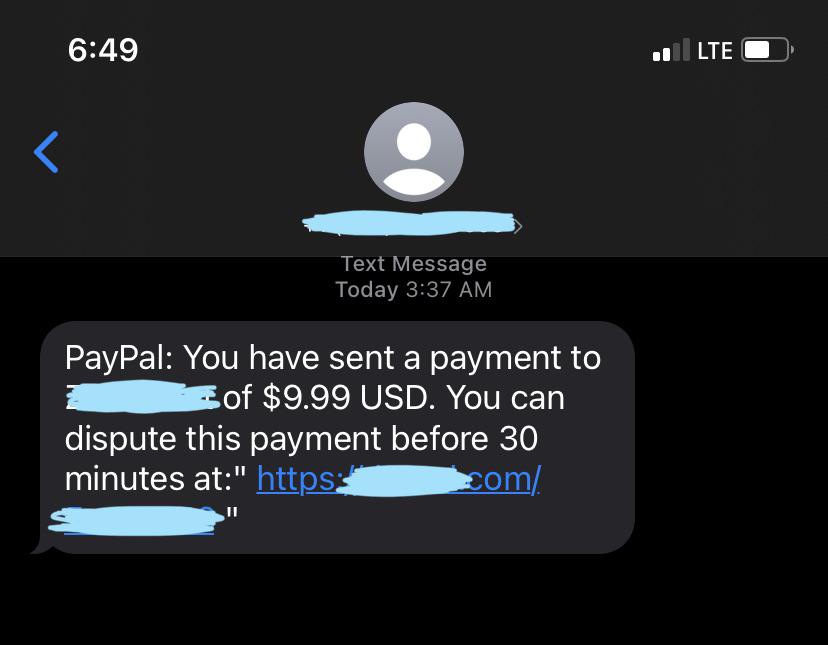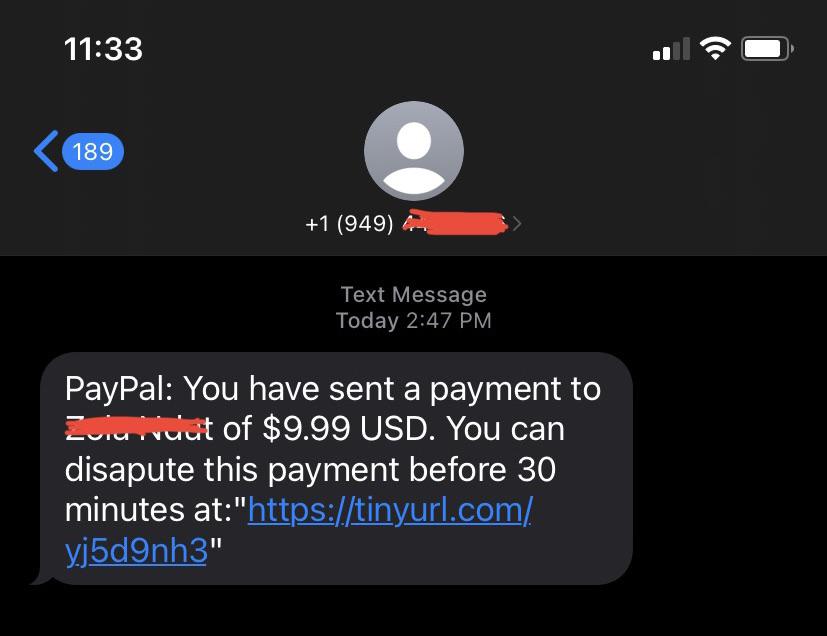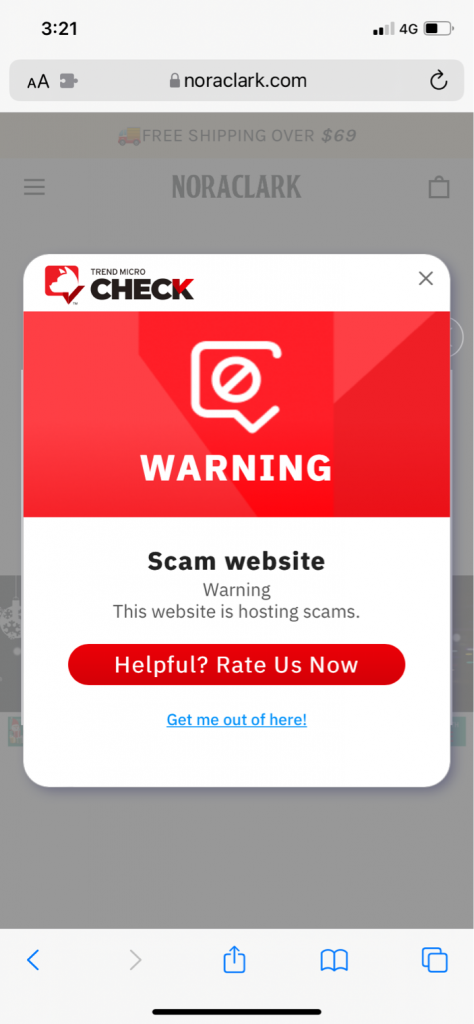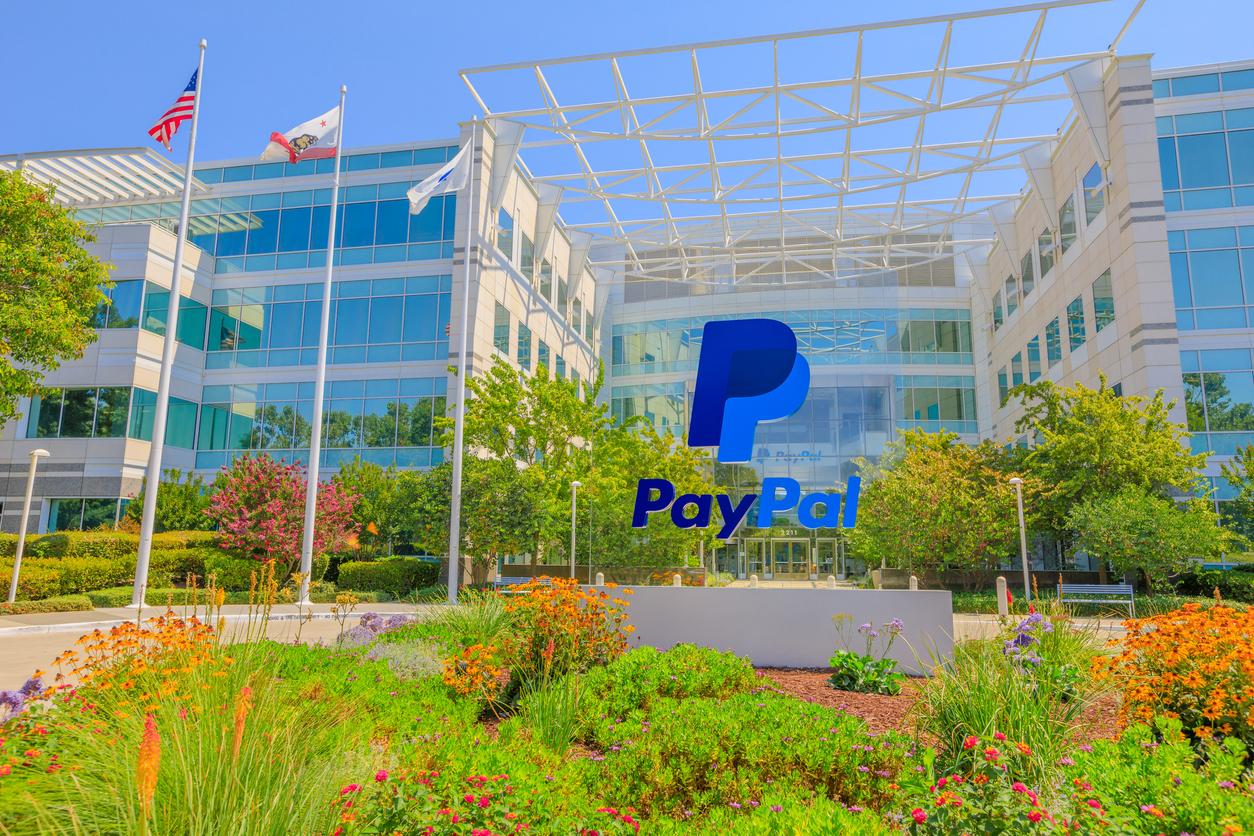Last Updated on March 30, 2023
On the whole, PayPal provides a great service for safely transferring money online. It is simple and secure and comes with many checks and balances to help protect users. Nonetheless, given its popularity, scammers aggressively utilize the platform’s name in their criminal activity. Recently, PayPal scam text messages have been making the rounds and users are advised to remain vigilant.
PayPal Text Message Scams


Source: Reddit
In these text messages, would-be victims are contacted by scammers and informed of a (fictional) payment that has taken place. Users are encouraged to get in touch to dispute the payment within thirty minutes. Doing so means following the URL, which leads to a phishing page designed to collect personal information.
How to Protect Yourself
- Double-check the sender’s mobile number/email address.
- Free gifts or prizes are always a major red flag.
- Turn to the bank’s official website to confirm any details regarding your benefit payments.
- NEVER click links or attachments from unknown sources. Use Trend Micro ScamCheck to detect scams with ease!

ScamCheck is an all-in-one browser extension for detecting scams, phishing attacks, malware, and dangerous links – and it’s FREE!
After you’ve pinned ScamCheck, it will block dangerous sites automatically! It’s available on Safari, Google Chrome, and Microsoft Edge.
Check out this page for more information on ScamCheck.
Other PayPal Scams
1. PayPal Account Problems
This is the most common scam. Scammers get in touch via email to “inform you” that there is a problem with your account. In the email there will be links which you are instructed to follow in order to resolve the issue. These are phishing links, the aim being to get you to enter personal information on the criminal’s fake log-in webpage.
2. Advance Payment Fraud
This is another common PayPal scam. In it, victims will receive the miraculous news that they are owed an amount of money: inheritance, lottery, compensation etc. The victim will be asked to make a small advance processing payment (using PayPal) and perhaps fill out a form with their personal data.
3. Overpayment Refund
This one is more humanly complex than the above — and particularly crafty. In this scam, a buyer sends a seller (you) the payment for goods. However, they send more than the sale price. The buyer points to the “accident” and asks for a refund of the difference. As soon as you do so however, the scammer immediately cancel the original transaction — thus making a profit with the difference you refunded.
4. Fake Charities and Investment Schemes
This horrible scam involves malicious requests sent out asking for donations to a fake charity. Often it will be requested via PayPal. Canceling the payment is no help if the scammer can withdraw the funds promptly —so you will need to check in advance. These schemes increase in frequency during/after a natural disaster.
If you’d like the low-down on PayPal scams, head over here for our report on common types we’ve found — we update it on a rolling basis. Finally, if you’ve found this article to be a helpful and/or interesting read, please do SHARE with friends and family to help keep the online community secure and protected.
